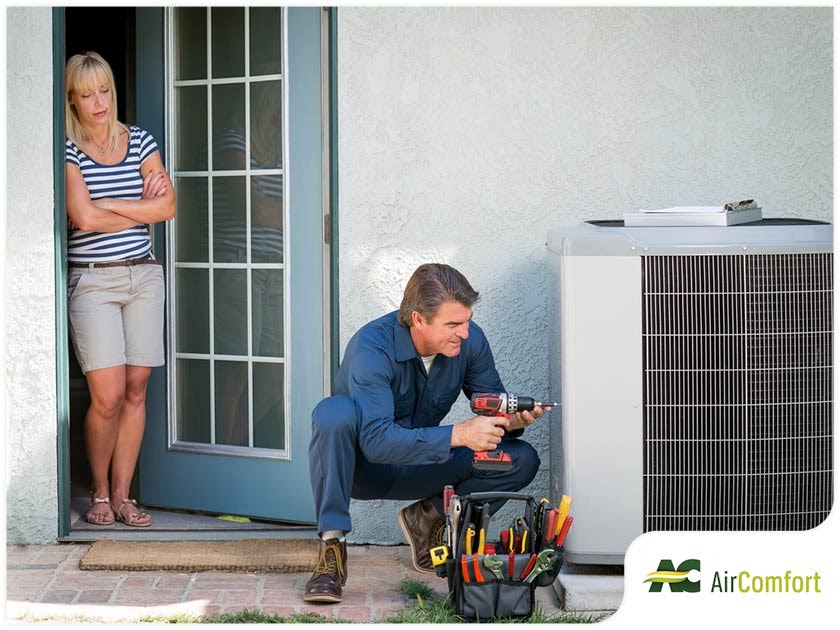Indoor Air Quality Canoga Park - Board of Heating, Air Conditioning & Refrigeration
Indoor Air Quality Canoga Park - Board of Heating, Air Conditioning & Refrigeration
Blog Article
Ductless Mini Split Canoga Park AC & Heating Services - HVAC Contractor
Indoor air quality is essential for maintaining a healthy dwelling setting. Many folks spend a major amount of time indoors, making understanding the common factors affecting indoor air quality crucial for overall well-being. Poor air quality can lead to various health issues, including respiratory problems, allergic reactions, and other long-term circumstances.
One of the primary contributors to indoor air quality is ventilation. Proper ventilation helps flow into fresh air inside a space, diluting pollution and moisture. Insufficient ventilation can entice contaminants, leading to increased concentrations of airborne toxins. Homes and buildings that are too tightly sealed for vitality efficiency can lead to poor airflow, emphasizing the need for balanced air flow methods.
Another essential factor is the presence of indoor pollutants. These can come from a variety of sources, together with family cleaners, paints, and pesticides. Volatile organic compounds, or VOCs, are generally found in lots of household products. When these products are used or stored improperly, they will launch dangerous gases into the air, contributing to compromised indoor air quality.
Humidity levels considerably affect air quality as well. High humidity can create a breeding ground for mildew, dust mites, and other allergens. Conversely, low humidity can result in dry skin and respiratory discomfort. It's essential to maintain optimal humidity levels, sometimes between 30% and 50%, to promote a comfortable and wholesome indoor surroundings.
Refrigeration Services Canoga Park HVAC Contractor Services
Temperature performs a job in how air quality is perceived and its precise composition. Comfortable temperatures are necessary not just for bodily well-being but in addition for mental focus. Fluctuations in temperature can affect the distribution of pollution in addition to the efficiency of heating and cooling methods. Thus, sustaining steady temperatures is significant for enhancing indoor air quality.
Common sources embrace risky natural compounds (VOCs) from paints and cleansing products, mold, dust, pet dander, tobacco smoke, and outdoor pollutants that enter buildings. Managing these sources is essential for sustaining good indoor air quality.
How can humidity ranges impact indoor air quality?
High humidity can promote mould progress and mud mites, while low humidity may cause respiratory points and discomfort. Maintaining indoor humidity ranges between 30-50% can help mitigate these results.
What function does ventilation play in indoor air quality?
- Ductless Mini Split Canoga Park
MERV Filters Canoga Park AC & Heating Services - HVAC Contractor
Proper ventilation is crucial for diluting indoor pollutants and bringing in recent air. It helps cut back the focus of dangerous substances and supports overall respiratory health by making certain enough oxygen ranges.

Yes, long-term publicity to poor indoor air quality can lead to respiratory points, allergy symptoms, headaches, and in some circumstances, severe health issues such as bronchial asthma and cardiovascular disease.
Zone Control HVAC Canoga Park Find a Local Plumber or Licensed HVAC Contractor
How often ought to I change air filters in my HVAC system for optimal air quality?
Typically, it's recommended to alter HVAC air filters every 1-3 months, depending on usage and the type this link of filter. Regular maintenance helps make sure the system operates effectively and improves indoor air quality.
HVAC Maintenance Canoga Park Top 10 Best HVAC Contractor
What are some straightforward ways to improve indoor air quality at home?
Simple measures embrace preserving windows open for recent air when climate permits, utilizing an air purifier, reducing using harsh chemical substances, maintaining humidity levels, and frequently cleaning and vacuuming to attenuate dust.
Preventive HVAC Maintenance Canoga Park What is an HVAC Contractor?
Can indoor crops help improve air quality?
Yes, sure indoor crops have been proven to soak up toxins and enhance indoor air quality - Sustainable HVAC Solutions Canoga Park. Plants like spider plants, snake crops, and peace lilies can improve aesthetics while promoting more healthy air.
Is indoor air quality worse in winter months?
Zone Control HVAC Canoga Park HVAC Repair and Installation Contractor
Indoor air quality can worsen in winter as a end result of lowered ventilation from sealed home windows and increased heating, which may dry out the air and elevate indoor pollution. It's important to observe and manage air quality year-round.

How does outdoor air quality have an result on indoor air quality?
Outdoor pollution can infiltrate indoor areas by way of home windows, doors, and air flow methods. Poor outdoor air quality can significantly impression indoor air, so consciousness and preventive measures are key to maintaining a healthy environment.
Boiler Services Canoga Park Heating & AC Services - HVAC Contractor
What steps ought to companies take to ensure good indoor air quality?
Businesses ought to carry out regular maintenance on HVAC systems, ensure adequate ventilation, conduct air quality assessments, minimize using toxic supplies, and encourage a smoke-free surroundings to promote employee health and productiveness. Report this page